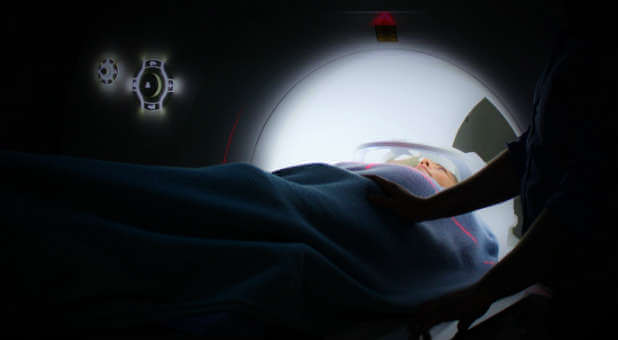“The generous soul will be made rich, and he who waters will be watered also himself” (Prov. 11:25).
In recent years, many studies have suggested a link between generosity and happiness. However, the neurobiological mechanism responsible for this connection has remained elusive.
Until now.
The Neural Link
The journal Nature Communications recently published a paper titled “A Neural Link Between Generosity and Happiness.” The paper reports findings from a study conducted by researchers from the University of Zurich in Switzerland.
The study found that participants who committed to practice generosity scored higher in markers of self-reported happiness. What’s more, the increase in happiness was strongly correlated on a neural level to specific changes in activity in key areas of the brain.
Thorsten Kahnt, PhD, assistant professor of Neurology in the Division of Comprehensive Neurology, co-authored the paper.
According to Kahnt, “There have been reports that people who spend money on others are happier, but it was always unclear why that is the case. This paper reveals the neural mechanism for why these two concepts are related.”
The Experiment
Researchers recruited 50 participants who were told that they were to each receive 25 Swiss francs (around $25 U.S.) every week, for four weeks. Each participant was then randomly assigned to one of two groups.
One group served as a control group, and each member pledged to spend the money on themselves. The second group was populated by participants who pledges to spend the money on other people.
Each participant was then asked to complete a seemingly unrelated task where they had to make decisions benefitting either themselves or others. During this process, researchers measured the participants brain activity using functional magnetic resonance imaging also known as “fMRI.”
The Results
The results showed that those who were asked to use their money on others made more generous decisions when faced with the unrelated decision-making task. Those who were told to use the money on themselves did not show this increase in generosity. Additionally, when subjective happiness levels were measured post-experiment, those in the generosity group reported much higher levels of happiness.
However, the most significant finding of the study was that the increased happiness of the generosity group tightly corresponded to the findings garnered through the fMRI measurements.
The researchers discovered that, when making generous decisions, the generosity group exhibited significantly increased activity in a region of the brain called the temporo-parietal junction (TPJ). The control group did not exhibit this increased activity. Generally, the TPJ is correlated with social cognition and empathy.
The research also found that the generosity group showed an increase in connectivity between the TPJ and another part of the brain called the ventral striatum. The ventral striatum is known to be related to reward and happiness.
“The connectivity between these two parts of the brain was modulated by the generosity that subjects showed in the experimental task,” said Kahnt. “And what’s interesting is that the signal of the striatum itself was directly related to increases in happiness.”
The Divinity of Generosity
Generosity is one the core teachings of Christ. Christians have always known the value of generosity, and now science is finally catching up.
“Let every man give according to the purposes in his heart, not grudgingly or out of necessity, for God loves a cheerful giver” (2 Cor. 9:7). {eoa}
Don Colbert, M.D. has been board-certified in Family Practice for over 25 years and practices Anti-aging and Integrative medicine. He is a New York Times best-selling author of books such as The Bible Cure Series, What Would Jesus Eat, Deadly Emotions, What You Don’t Know May Be Killing You and many more, with over 10 million books sold. He is the medical director of the Divine Health Wellness Center in Orlando, Florida where he has treated over 50,000 patients.































































